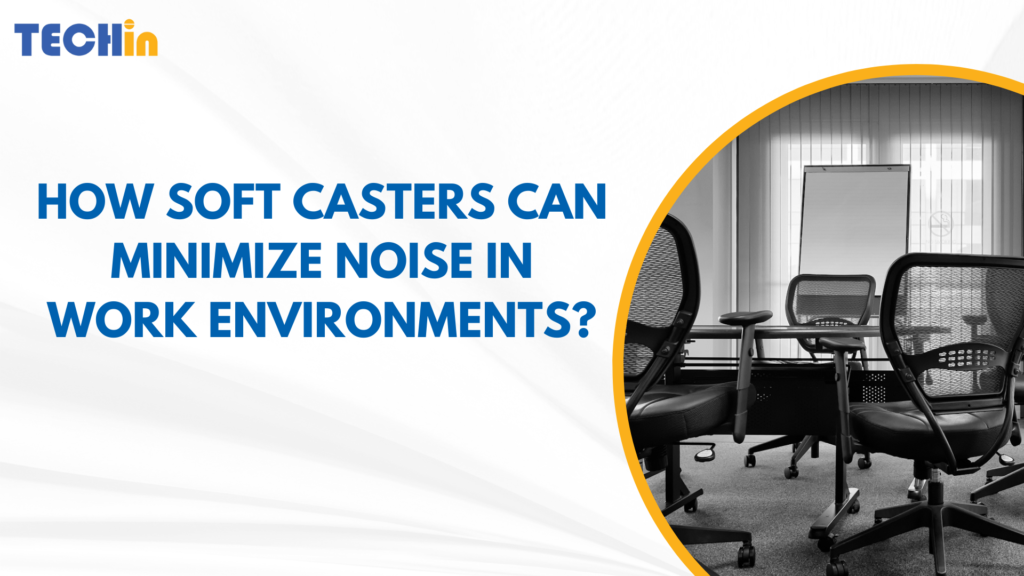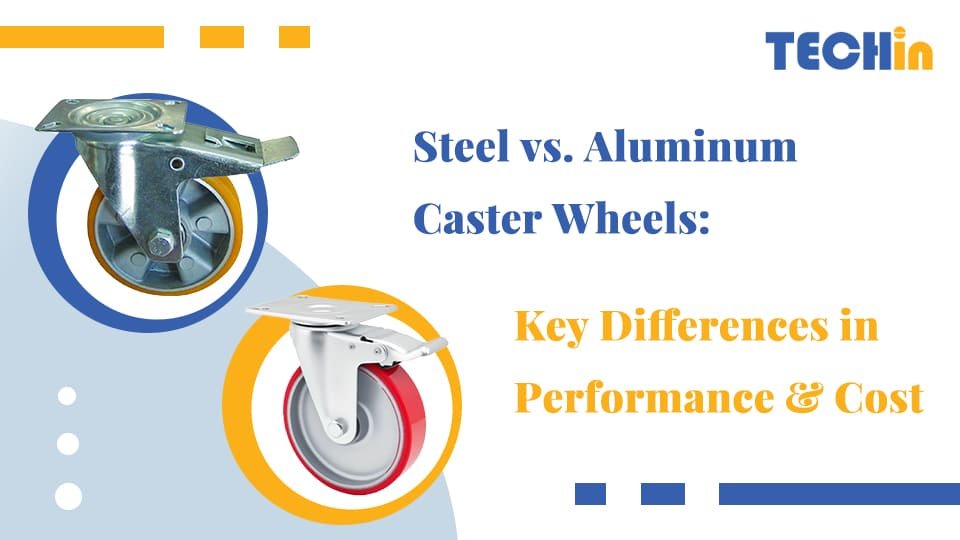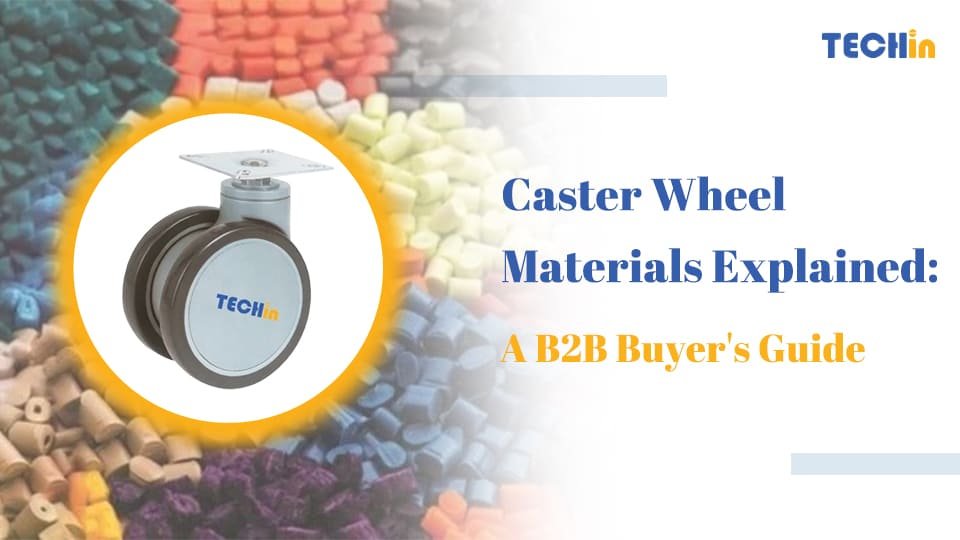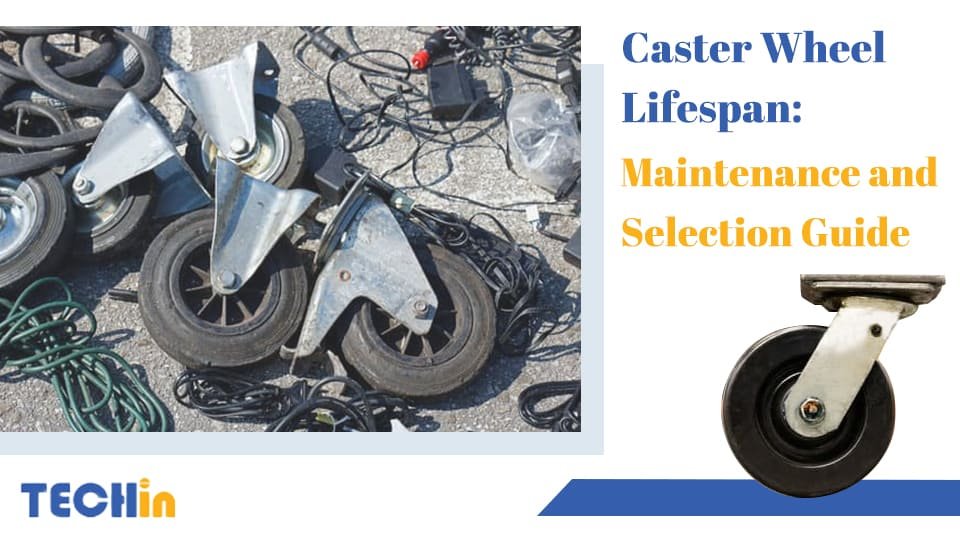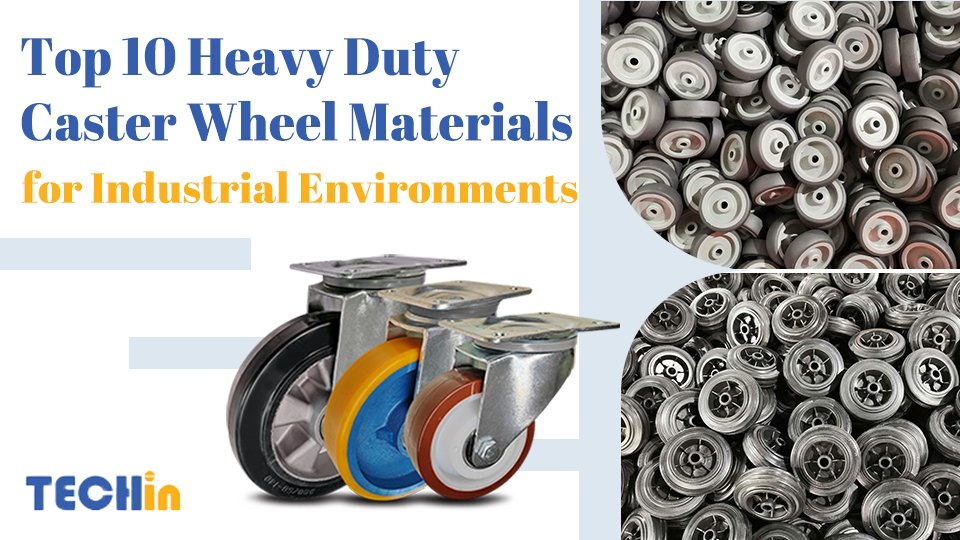In a busy work environment, managing noise levels is important for productivity, focus, and employee satisfaction. One thing that often gets overlooked is the noise that comes from the wheels or casters on carts, chairs, and equipment. Hard casters, which are typically made out of plastic or metal, make a lot of noise when they roll across hard floors. They clatter and make a lot of noise. Soft casters are the solution. They are quiet and work well on all types of surfaces.
Soft casters are a great way to reduce noise in your work environment. They reduce friction and absorb impact, which means you don’t get that harsh rattling or clattering that you get with harder casters. They are perfect for offices, hospitals, or any place where you want to have a quieter, more efficient operation.
Noise reduction in the workplace is more than just a comfort factor—it’s a critical element for ensuring high productivity and concentration. Soft casters are a simple and cost-effective solution that can reduce this form of environmental noise. Here’s how they work and how you can maximize their benefits in your workspace.
How to Make Casters Quieter
The noise from casters often arises from friction, poor material choice, or improper maintenance. Here are some essential tips to make casters quieter:
- Lubricate the Bearings Regularly: One of the primary causes of noisy casters is friction between the wheel and its bearings. Over time, without lubrication, this friction can increase, resulting in a grinding or squeaking sound. Regularly lubricating the bearings with appropriate oil or grease can ensure a smoother, quieter roll.
- Choose Soft Caster Materials: Materials make a significant difference. Hard casters (usually made from plastic or metal) are more likely to produce noise when they roll over hard surfaces like wood or tile floors. In contrast, soft casters, often made from rubber or polyurethane, can absorb vibrations and reduce noise by creating less friction between the caster and the floor.
- Avoid Overloading Carts: Overloaded carts can cause casters to struggle, increasing the noise as they roll. Keeping loads within the recommended weight capacity ensures that casters function smoothly and quietly.
- Consider Temperature-Resistant Casters: In environments with fluctuating temperatures, soft casters made from temperature-resistant materials ensure consistent performance. Temperature changes can make some materials brittle and prone to increased noise over time. Temperature-resistant casters maintain their softness and flexibility, leading to quieter operation even in challenging environments.
- Inspect Casters for Wear and Tear: Worn-out casters, especially those with cracks or chips, can cause additional noise. Regular inspection and prompt replacement of damaged casters can prevent unnecessary noise.
By following these maintenance tips and choosing the right materials, you can significantly reduce noise from casters in your workplace.
How Soft Casters Improve Workplace Noise Control
Soft casters are specifically designed to absorb sound and reduce noise. Unlike their hard counterparts, which make contact with the floor in a more rigid manner, soft casters are cushioned by materials like rubber or polyurethane. This means they produce less noise and offer smoother operation when rolling over hard surfaces.
Here’s how they work:
- Noise Dampening: The primary benefit of soft casters is their ability to dampen noise. Hard plastic or metal casters tend to rattle and clatter as they move across floors, especially if those floors are uneven. Soft casters, on the other hand, absorb much of the impact and friction, resulting in a quieter, more pleasant environment.
- Reduced Vibration: Soft materials not only reduce noise but also minimize vibration. This is particularly important for environments where sensitive equipment or items are being transported, as reduced vibration helps protect both the equipment and the floor surface.
- Smoother Rolling Action: Soft casters offer smoother rolling, which further reduces noise. This is especially noticeable on hard surfaces like concrete, tile, or hardwood floors, where hard casters tend to create friction and noise.
In environments where reducing noise is crucial—such as offices, healthcare settings, and libraries—soft casters provide a significant improvement over traditional caster designs.
Best Environments for Soft Casters
While soft casters can benefit almost any setting, they are particularly well-suited for environments where noise control is critical. Let’s take a look at some of the best environments for using soft casters:
- Offices: In modern office environments, particularly open-plan spaces, noise can be a major distraction. The constant movement of office chairs, carts, or other mobile equipment can cause significant noise pollution. Soft casters help reduce this noise, creating a quieter workspace that supports concentration and productivity.
- Healthcare Facilities: In hospitals and other healthcare environments, maintaining a calm and quiet atmosphere is essential for patient comfort and recovery. Medical carts, hospital beds, and other equipment with soft casters can move quietly through corridors, reducing noise and creating a more restful environment for patients.
- Libraries and Schools: In educational settings, where silence is often a necessity, soft casters prevent the noise that comes from moving furniture, carts, or equipment. This helps maintain the quiet required for study and concentration, improving the overall environment for students and staff.
- Retail and Customer-Facing Environments: In retail settings, noise can disturb customers and reduce the quality of their experience. Soft casters are often used on carts, displays, and other mobile equipment in retail spaces to ensure that noise is kept to a minimum.
Choosing the Right Caster Material for Noise Reduction
When selecting soft casters, it’s essential to choose the right material to maximize noise reduction. Common materials used for soft casters include:
- Rubber: Rubber casters are an excellent choice for environments where you need to minimize both noise and vibration. They offer a high level of cushioning and are particularly effective on hard floors.
- Polyurethane: Polyurethane casters are slightly harder than rubber but still provide significant noise reduction. They are more durable than rubber casters, making them suitable for heavier loads and long-term use. Polyurethane also offers excellent resistance to chemicals and abrasion, making it a versatile choice for various industries.
- Silicone or Thermoplastic Rubber (TPR): These materials offer excellent noise-dampening properties and are often used in environments where smooth rolling and quiet operation are priorities. They are also non-marking, which helps protect floor surfaces from scuffs and damage.
When selecting the best soft casters, it’s important to consider the type of floor in your workplace. Soft casters work best on hard surfaces, like wood, tile, or concrete, but if you are using them on carpet, look for casters specifically designed to roll smoothly on carpeted surfaces.
Summary
Soft casters are a practical and inexpensive way to reduce noise in your work environment. They absorb impact, reduce friction, and minimize vibration, which makes your work environment quieter and more comfortable. Whether you’re in an office, hospital, or retail space, soft casters are a must-have for controlling noise and increasing productivity. Switching to soft casters is an easy upgrade that provides immediate benefits, making your work environment more efficient and enjoyable for everyone.

